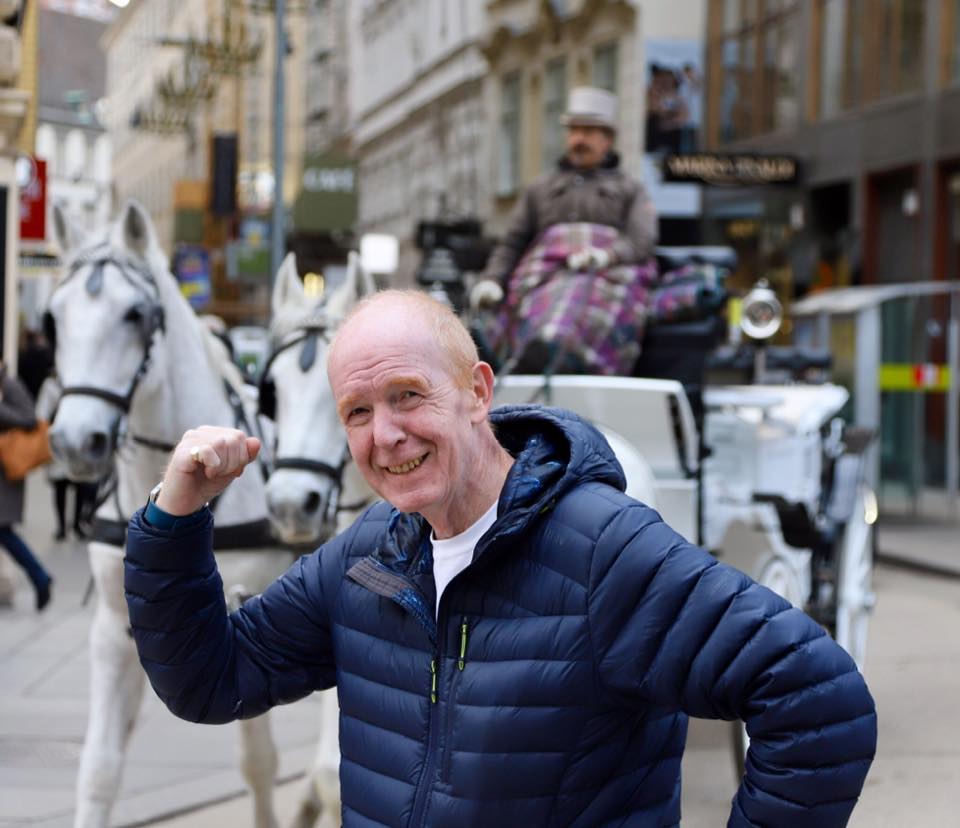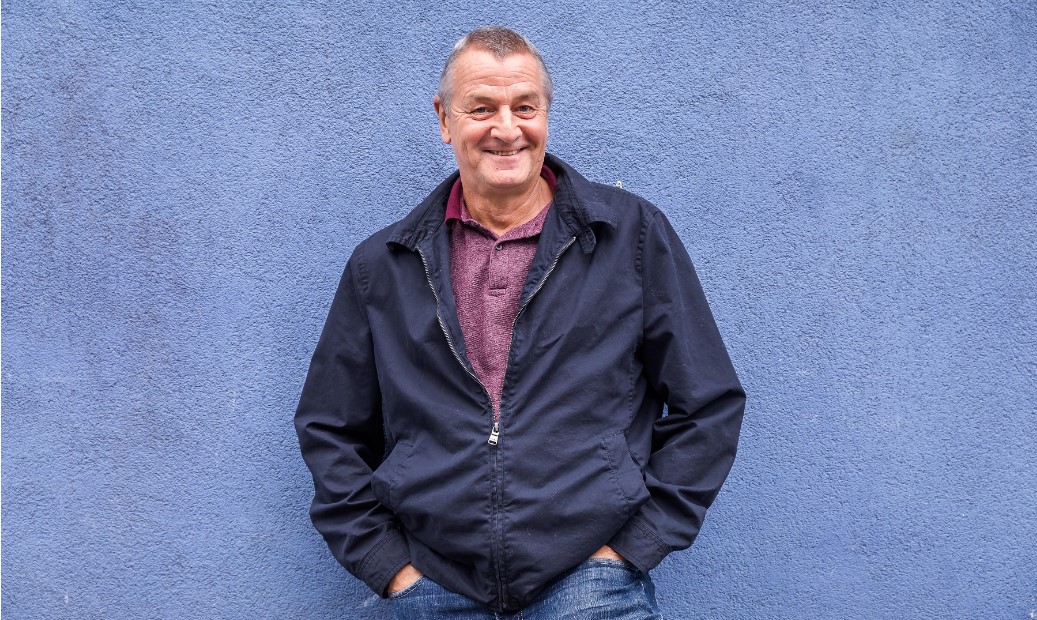84,000 North East smokers quit since COVID – a higher rate than anywhere
NEW FIGURES out today suggest 84,000 people in the North East have stopped smoking since the COVID-19 pandemic hit the country – the highest rate in the UK.
The analysis by ASH and UCL finds that over a million people in the UK have stopped smoking since the COVID-19 pandemic began, while a further 440,000 smokers tried to quit during this period. (1)
The quit rate in the North East is 20% – by far the highest in the UK. One former smoker is Phil Kyle, 55, from Newcastle, who smoked for three decades and had tried numerous times to stop before finally quitting over fears around smoking and COVID-19.
Phil is now celebrating being 12 weeks free of cigarettes after getting support from Healthworks Newcastle.
In June Fresh launched the Don’t Wait campaign featuring North East respiratory consultant Dr Ruth Sharrock urging smokers that there has never been a more important time to quit. WATCH AT https://www.youtube.com/watch?v=mq7ocr1FZ-U.
Smoking damages the lungs and immune system, making it harder to fight off infections, and increases the risks of heart attack, diabetes, COPD, stroke and cancer, which means if smokers do get coronavirus, symptoms could be more severe. Stopping brings immediate benefits to health, even for people with an existing smoking-related disease.
Phil

Philip, from Kingston Park, said: “I am under no illusion that my journey would have been more difficult without support. However, it wasn’t until the coronavirus outbreak happened that I seriously considered giving it another go.
“Due to my health condition I am immunosuppressed, which means I am in the high-risk group of developing COVID-19 complications so I am having to shield. I am very concerned about contracting COVID-19 as it would have very serious implications for me, so I thought now was the right time to quit smoking for good.・
“I started smoking in the late eighties when I was eighteen and in the military. It was my only passion at the time and I really enjoyed it. I used to smoke around 20 a day but it varied depending on what I was doing.
“Over the last 30 years I have tried to quit several times using a variety of methods such as going cold turkey and using medication, but I’ve never managed to quit successfully. I even lasted several months, but for various reasons I started smoking again.
“I had to have further surgery in the summer of 2019 and I began thinking about quitting again, but it didn’t feel like it was the right time – not that there is ever a right time. Looking back I think I was just trying to find an excuse not to try again, as I had failed several times before.
“My wife and daughter have been incredibly supportive and kept trying to encourage me to have another quit attempt. I knew I needed support to quit so I contacted Healthworks Newcastle and spoke to one of their advisors, who was brilliant.
“The support and advice have been extremely helpful and assisted a lot during my and I am sure others who have embarked on the Quit for COVID journey.
“My advice to anyone who is considering quitting smoking – give it a go and find a method that will work for you. If I can do it, so can you.”
David – appearing on BBC News 15.7.20

David Reay, 55, from Newcastle, decided to quit smoking after nearly 40 years to save money and improve his health. After several unsuccessful quit attempts, David is more determined to quit this time and is looking forward to saving around £3,000 a year by not smoking.
David, an office administrator, said: ”I started smoking when I was 16 and quickly developed a regular 20-a-day habit. My partner smoked too, so I never really thought about the health or cost implications.
“As I got older, I started thinking about how much I was spending, especially with the cost of cigarettes going up, so I decided to try and quit in order to save money. I tried several times using a variety of methods including patches, e-cigarettes, and nicotine gum – but each time I started back up again.
“Last year, my partner George and I both decided to quit as we thought we could support each another and it would be easier if we did it together. We knew we couldn’t just stop smoking, so we decided to try medication to see if would help. Unfortunately, we only lasted for a few months as we went on two holidays and ended up relapsing. We promised to quit when we got back home, but it was hard to break the addiction.
“Before the coronavirus pandemic started, we had been away, and I started thinking about how much we were spending on cigarettes. I worked out that if we both quit smoking, we could save around £6,500 a year between us, which is unbelievable. George and I agreed to have make another quit attempt after our holiday but then the COVID crisis and lockdown happened. Due to working from home and the stressful nature of his job, George is still smoking – however I’m hoping I can support him with my experiences.
“I was determined to go ahead and approached Newcastle Stop Smoking Service for advice and support. I was given Champix again and I found it much easier this time. By the third week of treatment my cravings had disappeared, and I have now been smokefree for three months. I have noticed the benefits – I no longer cough and I feel physiologically well. I just wish my Mum was here to see me, as she had nagged me for years to quit, but she has sadly passed away. She would have been really proud of me.
“As the whole country faces this major health crisis, it makes you realise just how important our health is. I want to do everything to give myself the best possible chance to stay fighting fit and protect my immune system. Quitting smoking is one of the best things you can do for your health overall and I feel so happy to be finally free of cigarettes.
“My advice to anyone who is considering quitting smoking – is find the right time to quit, give it a go and find a method that will work for you. Don’t give up, keep trying as it took me several attempts to quit successfully.”
Due to restrictions Newcastle Stop Smoking+ Service is currently doing telephone consultations with clients, instead of running their drop-in clinics or one-to-one meetings in the community, and this has been successful. It is also posting out vouchers to clients or pharmacies and encouraging people who are unable to collect prescriptions to use the Good Sam app.
Rachel Nichol, CGL Project Manager Newcastle Stop Smoking+ Service, said: “”Everyone is obviously anxious about COVID-19 but many smokers coming into our service right now are telling us they are worried about the additional risks of getting worse symptoms from coronavirus if you smoke and are telling us that this as a reason for stopping.
“We know people often cite stress as a reason to smoke and advisers are also reporting some clients say they feel too anxious to stay quit. We are reminding people that now is a really important time to stop and that in the long term, quitting is proven to improve mood and reduces anxiety as well as improvements in health and saving money.”
The ‘Don’t Wait’ campaign was launched in June featuring a powerful plea for smokers to quit for COVID from respiratory consultant Dr Ruth Sharrock. The campaign was launched by Fresh with the North East and North Cumbria NHS Integrated Care System Prevention Board.
Ailsa Rutter OBE, Director of Fresh, said: “The North East has seen the biggest fall in smoking since 2005 and now during COVID. There has possibly never been a more important time to quit smoking than right now. The coronavirus pandemic is focusing everyone’s minds on staying healthy and for people who smoke, quitting is an incredibly important step.
“We know that some people think it is too late to see any benefits from quitting smoking, but the fact is that there are health benefits to be gained from quitting at any age.
“We are delighted to see such support from our NHS and from Directors of Public Health to raise this important message and to encourage more smokers to quit.”
While thousands have heeded advice to quit during the COVID-19 pandemic, there is variation by age, with younger smokers quitting at a much greater rate than older smokers.
Around 400,000 people aged 16-29 have quit compared to 240,000 of those over 50. This difference is driven by rates of quitting among 16-29 year olds more than twice the rate those over 50 (17% of smokers and recent ex-smokers aged between 16-29 compared to 7% of those older than 50). People aged 30-49 have a slightly lower rate of quitting than the under 30s (13% of smokers and recent ex-smokers) but a similar number of people giving up smoking at around 400,000, due to the size of the population.
Search Smokefree for information, local top smoking service numbers and advice on stopping smoking.
References
1] The survey was conducted between 15th April and 20th June 2020. It was an online survey using the YouGov panel with 10251 respondents. For more information on the YouGov Covid Tracker see:
https://yougov.co.uk/covid-19. Additional analysis was undertaken by Action on Smoking and Health and University College London using ONS population data mid-year 2019 estimates. The central estimate is 1095409, with a 95% confidence interval of 947,096 to 1,259,014 people. This is a rate for short-term quit success and it remains to be seen if this translates into longer term quit success.
